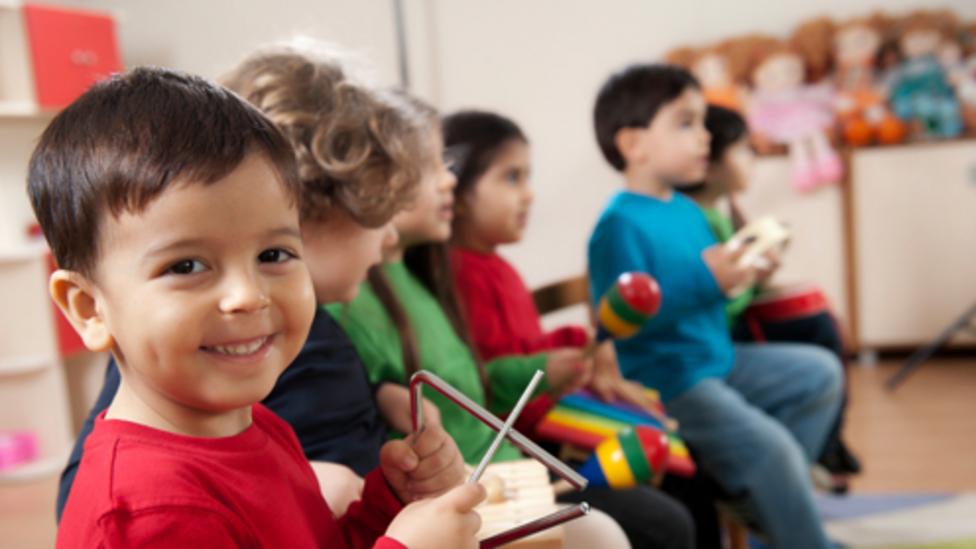Music helps babies and children learn
Develop your child's learning potential by playing and listening to music together

Babies are born with a natural ability to appreciate music, and early exposure to music plays a crucial role in ‘wiring’ your baby’s brain for learning.
For example, singing songs teaches children about how language is put together. When you sing, words and phrases are slowed down and are easier for your baby to understand.
Singing together regularly helps them to build up a vocabulary of sounds and words long before they’re actually able to understand the meaning.
Listening to music also helps to put babies and toddlers into a relaxed and receptive state – perfect for when you want to try a new activity with them.
Making music together is a cheap and easy activity that can provide a wonderful bonding experience for you to share.
Singing with your baby
Encourage your baby to clap along and move to the beat as you sing together.
For younger babies, pick songs and rhymes with a simple, steady beat and lots of repetitive language, and for older ones try more energetic songs with more varied beats, tone and rhythms.
Watch your baby as you sing. What are they doing? Try to let them take the lead, if they clap, you clap. If they roll over, you roll over.
Mirroring your baby like this will increase their self-esteem and self-confidence and encourage more of the same.
Using action rhymes and songs
Toddlers love rhymes! Singing and chanting together isn’t just fun – it’s a great way to introduce children to new words. Research has shown that the wider a child’s vocabulary is, the better reader they’re likely to become.
Rhymes also teach children how particular words sound, and shows them that changing a letter will make a rhyming word with a new meaning (e.g. ‘cat’ could become ‘hat’, or ‘moo’ become ‘boo!’) – this will help them when they come to learn letters and sounds at school.
Use rhymes at any time - they're a great way of keeping your child happy in the supermarket queue and a handy trick to have up your sleeve when boredom strikes!
Rhymes and songs can also help remind children of day-to-day routines or tasks like brushing your teeth or getting ready for nursery.
Try personalising the action rhymes you choose. So, when doing 'Incy Wincy Spider' - with fingers and hands moving upwards, just like the spider travelling up the spout – say your child's name instead of 'Incy Wincy'.
You could even name the whole family. Children often find this very funny - the strangeness of it appeals to their sense of humour.
If you need some inspiration, there are lots of rhymes and songs on the CBeebies website.
Make your own instruments
Making your own musical instruments is a brilliant way to encourage your child to get creative.
Tapping, banging or shaking in time with some music will introduce them to the idea of rhythms, patterns and beat which are useful for problem solving and reasoning.
Instruments don’t have to be complicated or expensive – if you can shake it, bang it, rattle it and make a noise, it’s an instrument!
Dried rice or lentils in an empty bottle makes a great shaker, or you could use a saucepan for a drum with a wooden spoon as a drumstick.
Letting your older baby make a noise with an instrument encourages self-expression, and gives them a way to communicate how they’re feeling before they can talk.
Try placing a collection of simple instruments with different sounds in front of them – they’ll tend to be more creative if they’re given choice and freedom to play.
Toddlers love the opportunity to make lots of noise, and it’s a good way to develop their language and listening skills.
Try making loud, quiet, slow and fast sounds, for example by tapping a pen on the table, or banging a wooden spoon on a saucepan. Stop after making each different sound and encourage your child to copy you.
At every stage, make sure you praise and encourage your little one’s efforts – appreciating their creative endeavours (however noisy they are!) will build their confidence and self-esteem.